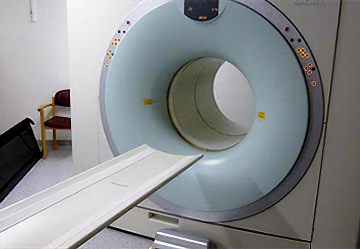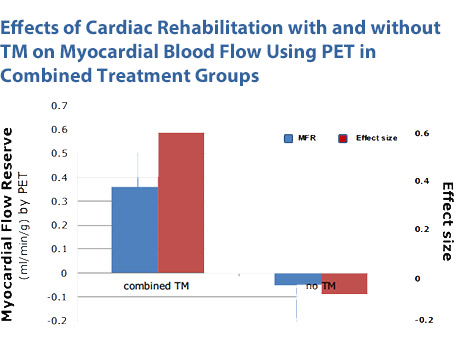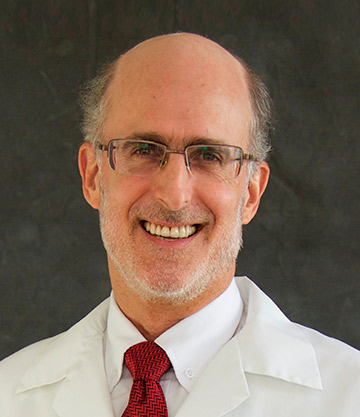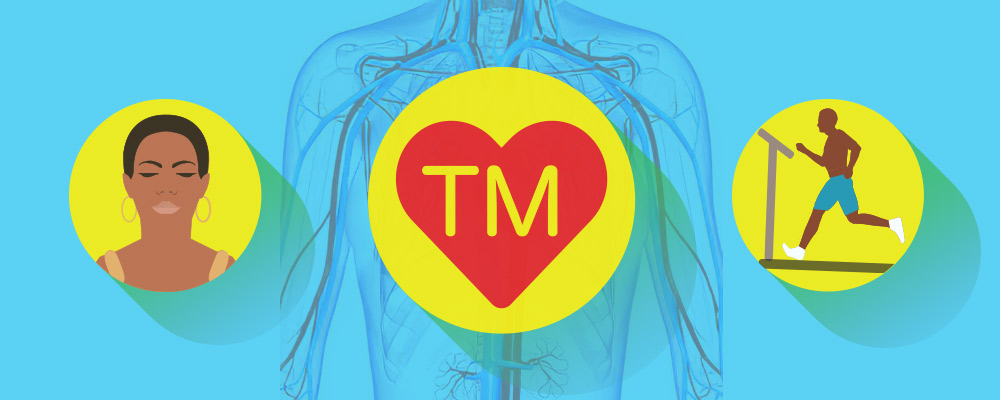Can more be done, in addition to diet and exercise, to better recover from a heart attack or stroke, or to prevent one? To find out, physicians and scientists from Columbia University Irving Medical Center and Maharishi International University (MIU, formerly Maharishi University of Management)* conducted a study that included the Transcendental Meditation® (TM®) technique.
This pilot study, published in the Journal of Nuclear Cardiology, reported that patients with coronary heart disease who included TM practice with their cardiac rehabilitation regime increased blood flow to the heart by more than 20 percent.
The study, “Effects of Cardiac Rehabilitation with and without Meditation on Myocardial Blood Flow Using Quantitative Positron Emission Tomography,” was funded by the National Institutes of Health (NIH) and involved 56 African American patients who had coronary heart disease, including a recent heart attack, coronary artery bypass, or angina.
The Journal of Nuclear Cardiology reported that patients with coronary heart disease who included TM practice with their cardiac rehabilitation regime increased blood flow to the heart by more than 20 percent.
The First Study of Its Kind
This research was a groundbreaking proof-of-concept study. It was the first to combine the Transcendental Meditation technique with other lifestyle changes, and the first to use positron emission tomography (PET) to measure the effect of mind-body lifestyle changes on heart function.

Cardiac PET scan machine used in the study of cardiac rehabilitation with and without TM (Photo courtesy of Columbia University Irving Medical Center)
“This was the first study to report that the cardiovascular benefits of lifestyle modification, such as structured exercise and lifestyle counseling, may be enhanced by adding the Transcendental Meditation technique for patients with heart disease,” said Robert Schneider, M.D., F.A.C.C., co-director of the study and dean of the College of Integrative Medicine at MIU.
“It also found that the TM technique by itself was able to reverse the effects of coronary heart disease, as assessed by PET imaging, and produce a change from a diseased state towards a more healthy state,” Dr. Schneider said.
Cardiac PET is considered to be the gold standard for non-invasive measurement of blood flow in the heart. PET imaging shows the current state of cardiac health or disease and helps to predict the future course of coronary heart disease.
“This was the first study to report that the cardiovascular benefits of lifestyle modification, such as structured exercise and dietary counseling, may be enhanced by adding the Transcendental Meditation technique for patients with heart disease.” —Dr. Robert Schneider
Randomized, Controlled Pilot Study
The researchers randomly divided the subjects into four treatment groups: cardiac rehabilitation, TM technique, TM technique plus cardiac rehabilitation, or usual care. Patients in the “usual care” group continued receiving standard medical care from their usual doctors, including medications, lifestyle recommendations, and surgery, if needed.

Pre- and post-test changes in blood flow to the heart for 4 treatment groups: cardiac rehabilitation (CR), Transcendental Meditation (TM), CR + TM, usual care (Courtesy of MIU)
The results showed that of the 37 patients who completed post-testing, myocardial blood flow increased by 20.7 percent in the group that did both Transcendental Meditation and cardiac rehabilitation.
Blood flow in the group that practiced the TM technique alone increased 12.8 percent.
Cardiac rehabilitation by itself showed an improvement of 5.8 percent. And patients who received the usual treatment showed a decrease in blood flow of –10.3%.
“The data from this pilot study suggest that TM alone or TM plus exercise—that is, cardiac rehabilitation—improves coronary heart disease as measured by blood flow to the heart,” said Dr. Schneider. “This information provides the basis for designing and conducting larger follow-up studies.”
Myocardial blood flow increased by 20.7 percent in the group that did both Transcendental Meditation and cardiac rehabilitation.
Stress-Reduction Therapies in Cardiac Rehabilitation
“Although this is a preliminary study, it suggests that practicing the TM technique can improve the function of the heart in cardiovascular patients,” said Dr. Schneider.
He noted that psychosocial stress is known to be a risk factor for coronary heart disease but that stress-reduction techniques aren’t usually included in cardiac rehabilitation programs. Cardiac rehabilitation is recommended when a patient is diagnosed with heart disease, undergoes angioplasty to unblock a coronary artery, or has had a heart attack.
“More research needs to be done, but this study and previous research strongly suggest that medical professionals should consider utilizing this simple yet effective stress management technique in their heart-health treatment and prevention programs,” Dr. Schneider said.
“The pilot data from this study suggest that TM alone or TM plus exercise (cardiac rehab) improves coronary heart disease as measured by blood flow to the heart.” —Dr. Robert Schneider
Possible Mechanism for Increasing Blood Flow
It’s not known precisely how practicing TM, a mental technique that benefits both mind and body, would increase blood flow in the heart.

Changes in blood flow to the heart for the combined TM and non-TM groups (Courtesy of MIU)
The researchers speculate that it’s a result of reduced levels of stress hormones, and possibly reduced inflammation, leading to improved function of the endothelial cells that line the coronary arteries. They cite studies that have found that modifying risk factors for cardiovascular disease improves blood flow in the heart.
“Many studies show that psychological stress leads to damage of the cells that line the arteries. Other work shows that exercise and healthy diet improve artery function and structure,” said Dr. Schneider.
Earlier studies have shown that the Transcendental Meditation technique reduces risk factors for cardiovascular disease, such as blood pressure, atherosclerosis, and insulin resistance. A 2012 study found a 48 percent reduction in heart attack, stroke, and death.
Reduced levels of stress hormones, and possibly reduced inflammation, may result in improved function of the endothelial cells that line the coronary arteries.
The Need for Full-Scale Clinical Trials
The study reports how the TM technique can increase blood flow in cardiovascular patients. Now, carefully conducted clinical trials with larger sample sizes are needed to confirm and extend that benefit.

Robert Schneider, M.D., F.A.C.C.
“This was a first pilot study, designed to determine feasibility and the size of the effect,” Dr. Schneider said.
“Of the 56 original subjects, only 37 were available for the final post-testing of blood flow after the 12-week study period. In addition, compliance with cardiac rehabilitation was average, with attendance at exercise sessions about 60 percent. Also, the subjects practicing the Transcendental Meditation technique may have received more attention than the rehabilitation group,” he explains.
As Dr. Schneider concludes, “This initial study paves the way for full-scale clinical trials that will more rigorously evaluate these effects.”
“This initial study paves the way for full-scale clinical trials that will more rigorously evaluate these effects.” —Dr. Schneider
* Note: Dr. Robert Schneider and his MIU colleagues have joint appointments with Maharishi University of Management Research Institute (MUMRI), which was the recipient of the NIH grant. Concurrent with MUM’s recent name change to Maharishi International University, MUMRI has been renamed the Institute for Prevention Research.






I was in AFIB and TM restored my heart to NSR